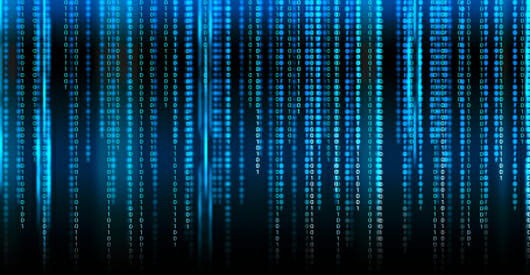
Around the time that the desktop computer started to become a common business appliance, I noticed something odd. As more industries became computerized, I—as a consumer—was being asked to do more of the work that had been done previously by skilled professionals.
Typing, which became word processing, was once done by secretaries (see Mad Men). Now I had to do it myself, on my word processing software.
Typesetting for books, once done by typesetters, was being done by guys in their dining room on early Apple computers.
Booking flights, once done by travel agents, was faster and cheaper to do on the web, once the airline’s databases were made available.
Where once each task took place in its own world, according to its own rules, using its own material and discussed in its own jargon, now it was all flowing through the computer.
And rather than specialists somewhere doing these things, we had all become computer operators instead of typesetters, secretaries, travel agents. The world was becoming digitized, like one of those scenes from The Matrix but I didn’t realize it.
Away from Reality, Please
To be modern, to take on these tasks, we needed the computer. Everyone wanted one at first. Then, everyone had to have one. Or their boss came in and put one on their desk, and said, here, this is the new way.
- Typesetters who used to pick up little pieces of metal and arrange them in lines, or who operated big noisy machines that cast lines of type in hot metal slugs, now sat and tapped at keyboards.
- A friend, who for years had slaved over a big flatbed film editing machine, cutting and splicing thousands of feet of film, bought a Macintosh and sold the flatbed years ago.
- The car mechanic, who used to listen to the engine, tap various places with his wrench, now operates a computerized diagnostic machine that tells him what’s going on.
The list goes on and on. The checkers at supermarkets used to know all the prices, did you know that? Now, they are scanner operators. London taxi drivers used to study for a year or more to learn the city well enough to pass the license test. I wonder if they slap a GPS on the dash now, and just get on with it.
People who cut fabric for dressmaking operations now feed the information into sophisticated cutters driven by computers and watch as the machine does a far more accurate job than they ever did.
Doctors once used their ears, eyes, hands as well as the knowledge in their heads, to diagnose you. Now, they wheel you onto a tray and shoot you inside a machine that does all the diagnostic imaging, and a technician interprets the images.
Designers, printers, typographers, illustrators came together and pooled their skills and knowledge of design, paper, type, inks, and printing presses, and produced books. Now we upload two files to a server somewhere, and wait for the Fedex to deliver our book.
We have gradually been drawn away from contact with the things of the world. Instead, our experience is mediated by the computer, a device for manipulating, creating and transmitting digital data.
Does it matter if we never touch the pile of cloth, the paper, the type, the abdomen of the patient, if we no longer learn the different sounds the engine makes, the feel and taste of the soil, does that matter?
For all the wonders that digitization has brought to the world, there are things that have been lost, that we are losing right now.
I’ve pulled the long lever on a hulking black iron press, felt the kiss of the inked type against the tooth of the paper. Thousands of pulls, thousands of kisses, and eventually you acquire a “feeling,” the sense of what’s happening where it cannot be seen. Have we lost the need for the gradual accumulation of experiences like that? Or do we just focus on stuff that’s more important now?
I don’t know the answer to that question, I just keep asking it.
What do you think?


